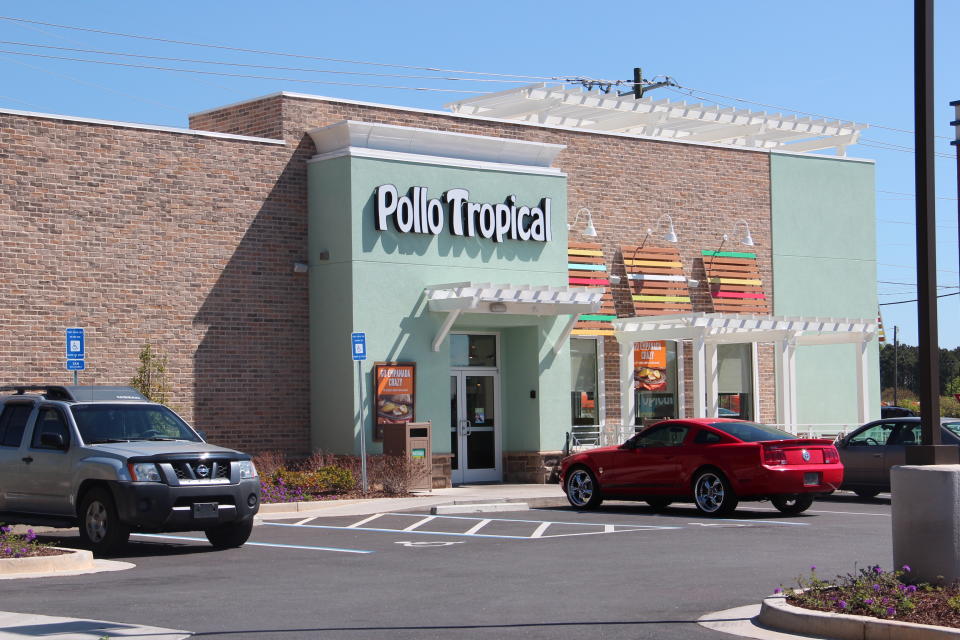15% of big US chain restaurant locations were in hurricane-exposed areas

America’s publicly-traded restaurant chains had 13,000 locations, or 15% of total units, in hurricane-exposed areas, according to Credit Suisse’s Jason West. And this could spell more bad news for the already-ailing quick serve and casual dining group.
Some big chains like Starbucks (SBUX)—with 700 stores currently closed related to the hurricane—have large store counts in the impacted regions. But analysts say the real downside risk is associated chains where a large percentage of their units are in the path of Hurricanes Harvey and Irma—namely, Houston-area in Texas and Florida.
Names with particular exposure? Fiesta Restaurant Group (FRGI)—owner of Pollo Tropical and Taco Cabana brands—has over 70% exposure to Houston-area and Florida, according to Maxim Group’s Stephen Anderson. Meanwhile, Darden (DRI)—owner of Olive Garden and LongHorn Steakhouse—has 15% exposure to hurricane zones, BJ’s Restaurants (BJRI) has 12% exposure, and Cheesecake Factory (CAKE) has 10%, Anderson added. Zoe’s Kitchen (ZOES), Ruth’s Hospitality Group (RUTH) and Outback Steak owner Bloomin Brands (BLMN) have also been pointed out by analysts as especially exposed to hurricane zones.
Analysts acknowledge the storm impact could be temporary, but warn there could be more significant disruptions long-term with the storm surge and massive amounts of rain.
“More store closure days equals more impact,” according to Piper analyst Nicole Miller Regan. “Flooding tends to lead to that, whereas a wind storm potentially has relatively less impact if doors reopen more quickly.”

Chain restaurants were already challenged
Meanwhile, rising gas prices could have a lasting impact. Prices at the pump have risen over 15% over the past few weeks, according to West, which could keep people from driving to and spending at restaurants.
All of this comes as the industry struggles to attract customers. Industry-wide, same-store sales (SSS) fell 2% in August.
“More important than hurricane-related disruption are core SSS trends, which remain sluggish, reinforcing our oversupply thesis,” West said.
“We remain cautious and believe stocks will be remain under pressure in the near term until we gain greater visibility around the impact of Hurricane Irma,” according to Canaccord’s Lynne Collier.
After dismal trends over the summer, analysts were looking ahead to the coming quarter. Now, incremental improvement is pushed off even further, they added.
Maybe, though, there will be eventual upside. After all, Collier added that restaurants are trading at valuation levels not seen since the recession.
“We believe the negative sentiment towards casual dining is virtually unprecedented,” she said.
Nicole Sinclair is markets correspondent at Yahoo Finance
Please also see:
How Apple can prevent the iPhone from going the way of the PC
DACA repeal will conservatively hit GDP by $105 billion over five years, Mark Zandi says
Why $475,000 isn’t actually that expensive for Novartis’ new drug
Gilead may have just bought itself a drug pricing controversy
